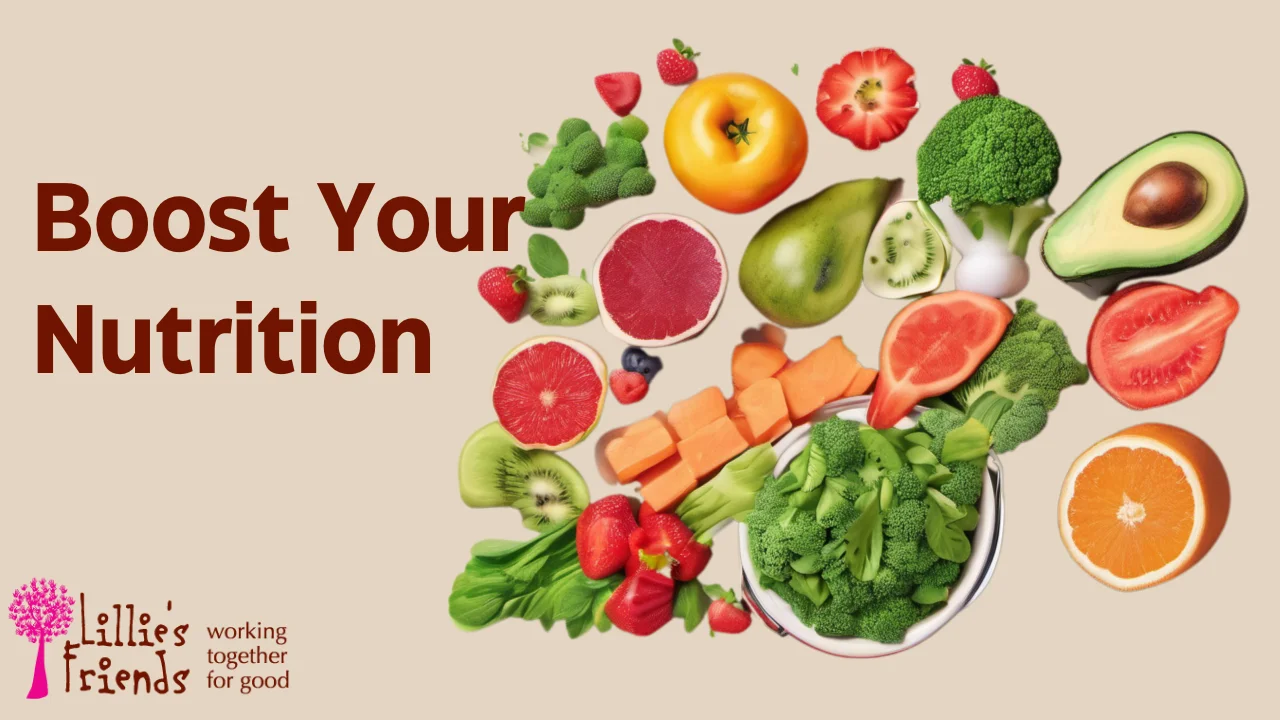Highlights
- In addition to their own advantages, natural therapies for ADHD can enhance the effects of prescription drugs.
- Among the numerous natural methods of treating ADHD that have been shown to be effective are diet, adequate exercise, and mindfulness.
- A healthcare provider should always be consulted before selecting or using any medications or dietary supplements.
Knowing the ADHD Brain
The brains of people with ADHD are frequently very different from those of people without ADHD, according to MRI studies. Such differences can include variations in the structure, the function of signaling hormones known as neurotransmitters, and the patterns of neural connectivity in key brain regions. These could be the cause of impulsivity and trouble focusing, two of the more complicated symptoms of ADHD.
These neurotransmitters are the focus of ADHD drugs, despite their various modes of action. They regulate, for instance, the amount and activity of the brain chemicals norepinephrine and dopamine. However, alternatives to medication, such as physical activity, can also have a positive impact on these neurotransmitter levels and even directly enhance neurophysiology and behavior in individuals with ADHD. Furthermore, the sense of accomplishment that comes from achieving your own goals can motivate you to maintain healthy lifestyle modifications, which will ultimately have longer-lasting effects.
The Top 9 Natural ADHD Treatments
A well-balanced diet
Numerous studies have examined the potential connection between diet and ADHD. Diets high in sugar and unhealthy fats may increase the likelihood of ADHD symptoms, as suggested by a 2019 review ↗ of 14 studies. The following dietary components have also been associated with symptoms of ADHD:
Foods to Include
Healthy Fats: Studies have indicated that omega-3 polyunsaturated fats, among other healthy fats, may be useful in the treatment of ADHD [3*]. Foods high in omega-3s include walnuts, flaxseed or chia seeds, fatty fish like salmon or mackerel, oysters, soybeans, and some omega-3-enriched eggs.
Foods to Steer Clear of or Limit
Caffeine: According to a 2020 study ↗ , teens with ADHD who drink coffee have worse sleep, and poor sleep is frequently linked to problems focusing and learning—two traits of ADHD. The FDA advises ↗ consuming no more than 400 milligrams of caffeine per day, which is equivalent to 24 to 36 ounces of coffee. Although some users claim that caffeine helps them focus and pay attention, cutting back on caffeine consumption may have more beneficial effects that lessen the symptoms of ADHD.
Artificial Food Colorings: Although the exact mechanism of this process is still unknown, there is mounting evidence that artificial food colorings ↗ (AFC) are associated with symptoms of ADHD. The consumption of AFCs like Red Dye 40, Yellow 5, Blue 1, and Blue 2 is typically higher in children. Candy, drink mixes, and colored beverages frequently contain these AFCs.
Supplements for Nutrition
Supplemental therapy may also help alleviate symptoms of ADHD. Studies have revealed the following:
- Probiotics and Fibers: Research suggests that hormones and immune system components in the gastrointestinal tract (gut) interact with the brain, influencing its function. Certain research ↗ suggests that ADHD could be associated with an imbalance and disturbance of the gut microbiota, or the bacteria that reside in your stomach. Taking supplements like fiber or probiotics can alleviate certain symptoms of ADHD and maintain the health of your gut microbiota. Probiotics are available in various forms, including fermented foods like kefir, kombucha, and sauerkraut, as well as gummy supplements. Among other foods, psyllium husk, brown rice, chickpeas, and fruits and vegetables are high in fiber.
- Magnesium and vitamin D: According to a 2021 study, these supplements helped children with ADHD experience fewer symptoms. Egg yolks, fatty fish, and some kinds of mushrooms are good sources of vitamin D. It can also be found in fortified milk or as a supplement.
Before using any supplements or herbal remedies, you should always consult your healthcare provider to make sure they are appropriate and safe for you.

Frequent Physical Activity
Research has demonstrated that frequent exercise can improve general mental health and alleviate symptoms of ADHD. One explanation is the rise in dopamine and norepinephrine that occurs during and after exercise, which enhances concentration and focus. Serotonin, which controls emotions, is also increased by exercise.

The use of behavioral therapy
The management of ADHD is not an exception to the long-standing importance of behavioral therapy in the treatment of mental health conditions. The aim of this kind of therapy is to improve everyday functioning by changing particular behaviors.
Cognitive-behavioral therapy (CBT), a more specialized form of therapy, aims to reroute or redesign a person’s negative thought patterns to replace them with more constructive, positive ones. For instance, by increasing self-confidence and teaching time management techniques to enhance focus, cognitive behavioral therapy (CBT) can help lessen the impulsivity and procrastination that define ADHD. Research ↗ indicates that CBT can significantly reduce the symptoms of ADHD.
Furthermore, a 2018 study ↗ discovered that parent education can enhance “other aspects of functioning” and lessen noncompliance in kids with ADHD. In addition to lowering parental stress, such education can also lower stress levels in ADHD sufferers. Although the study concentrated on parents and kids, loved ones of adults with ADHD may also benefit from increased knowledge of the disorder’s signs, symptoms, and other features.

Meditation and Mindfulness
Over the past 20 years, mindfulness and meditation have grown in popularity and have a wide range of uses in mental health. Meditation has been shown to reduce stress and anxiety and improve sleep quality. Additionally, mindfulness can improve concentration and focus. Therefore, it should come as no surprise that research has demonstrated the effectiveness of mindfulness-based interventions in reducing symptoms of ADHD.

Adults’ Time Management and Organizational Skills
The capacity to prioritize tasks, estimate their duration, and finish them on schedule are some essential elements of efficient time management. These skills might come easily to most people, but for individuals with ADHD, managing them can seem almost impossible.
A new Cleveland Clinic recommendation describes an approach that helps people view tasks as agreements and incomplete tasks as broken agreements. In addition to encouraging the use of rewards upon task completion to boost motivation, the approach helps foster a sense of accountability and responsibility that can be motivating for adults with ADHD. Common time-management tools such as planners, calendars, and digital reminders can also simplify long-term planning. Many of these tools are easily accessible on smartphones as apps.
More Time Spent in Nature
Everyone benefits from spending time outside, but it may also be a “natural medicine” for ADHD. Research studies ↗ support the “green time” effect, which links spending time in nature with a reduction in symptoms. Children who have access to green space, for instance, are more likely to perform well on attention tests, have fewer behavioral issues, and are less likely to develop ADHD.
Although more research is needed to determine how spending time in nature affects adults with ADHD, outdoor activities have been demonstrated to enhance mental health in ways apart from ADHD, such as fostering relaxation, lowering stress levels, and assisting in the management of anxiety and depressive symptoms.
Better Sleeping Patterns
Sleep disturbances are common in people with ADHD, which can exacerbate the disorder’s symptoms. Common sleep problems, which are believed to be caused by dysregulation of neurotransmitters like dopamine and norepinephrine, can include trouble falling and staying asleep. Breathing conditions like narcolepsy, sleep apnea, and restless leg syndrome can cause additional sleep issues.
One effective strategy for addressing the symptoms of ADHD and related sleep disorders is education about the elements of good sleep “hygiene.” Establishing a regular bedtime and wake-up time, creating a relaxing pre-sleep routine, minimizing screen time before bed, avoiding caffeine later in the day, and using weighted blankets or devices like noise machines are some examples of good sleep hygiene practices.

Relaxing with Aromatherapy
Essential oils extracted from flowers, herbs, or trees are used therapeutically in aromatherapy. Anecdotal evidence supports ↗ the use of aromatherapy in treating ADHD symptoms, despite the paucity of research on the subject.
Aromatherapy is thought to be effective because it affects the limbic system of the brain, which controls emotions and behavior. It is frequently used to encourage relaxation, lessen tension and anxiety, and enhance sleep.
- The calming, relaxing, and anxiety-reducing properties of lavender are well-known.
- Often referred to as the “oil of tranquility,” vitex is thought to enhance concentration and lessen restlessness.
- Cedarwood is linked to decreased impulsivity and enhanced focus.
- For those with ADHD, chamomile’s calming properties can help control restlessness and enhance sleep quality.
Note: To ensure safety, please speak with a healthcare provider before using aromatherapy for ADHD. Strong essential oils have the potential to produce negative side effects like skin irritation or allergic reactions.
Striking the Correct Balance in the Management of ADHD
A variety of strategies, such as medication management, therapy, and lifestyle modifications, must frequently be balanced to effectively manage ADHD. Even with a well-thought-out plan, each person needs to customize this combination to see noticeable results. There is a trial-and-error phase when selecting natural treatments for ADHD, whether or not medication is used. Once you pass it, though, you may discover methods and strategies that will serve as your continuous, long-term support.
Note that it’s crucial to speak with a healthcare provider for a precise diagnosis as well as before beginning any medication or nutritional supplementation to treat ADHD. Since every person’s experience with ADHD is different, no two treatments will be the same, and a medical professional can develop a customized plan. For expert techniques to manage symptoms, look into online ADHD management.
Conclusion
ADHD is mainly treated with medication, but there are many natural treatments too. You can experiment with talk therapies, mindfulness and meditation, regular exercise, and eating a balanced diet. Holistic ADHD treatment can be a useful part of a comprehensive strategy, but it may not work for everyone.
Schedule an appointment at Lillie’s Friends right now if you would like to see a medical professional for an ADHD evaluation and to receive a customized treatment plan.











